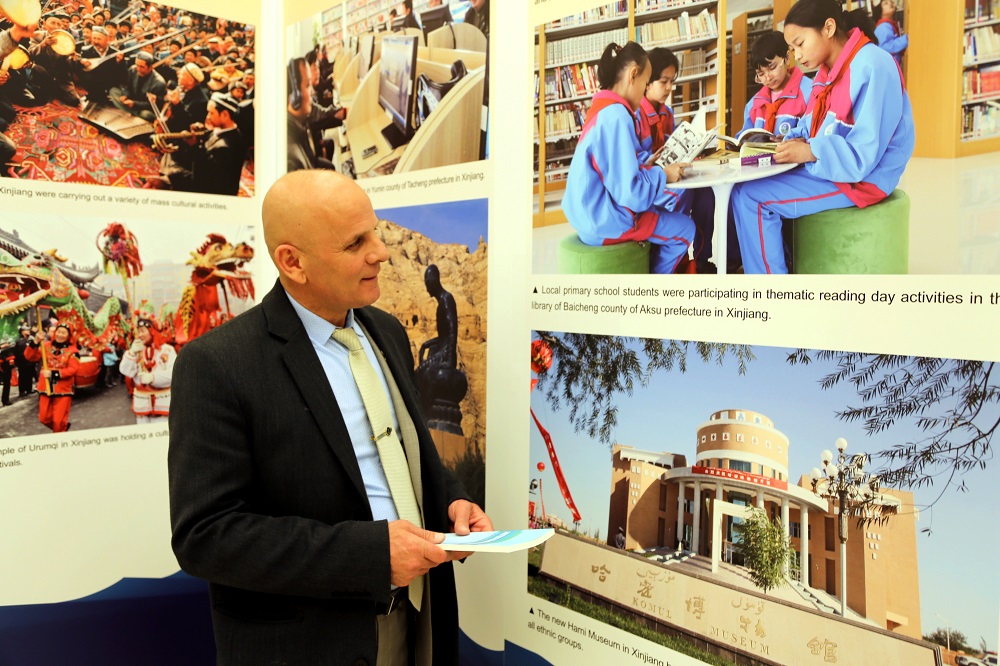Photos mark human rights progress


Romain Perez, from the secretariat of the United Nations Conference on Trade and Development, was taking a break on Friday morning when he stopped by an exhibition in a hallway of the UN Office at Geneva.
It was the last day of a five-day photo exhibition on human rights development and progress in the Xinjiang Uygur autonomous region. The 84 photos covered a wide range of subjects, from daily life, cultural diversity and freedom of religious belief, to ethnic harmony, grassroots democracy and economic modernization.
Perez himself was fascinated by several photos about the high-speed rail, modern livestock farming, advanced manufacturing and other forms of progress in the region.
"It seems to be very modern. I saw a lot of installations and I'm very impressed. (There is) a lot of development," said Perez, who is from France and visited Shanghai in 2001 but has never been to Xinjiang. "China is changing quickly," he said.
Brahim Laghzal, from Morocco, has worked at the UN Geneva office for eight years. He has not been to China but said he knew the country was very different from just a few decades ago. People from Asia to Africa to the Americas certainly need to exchange their various experiences and cultures, he said.
The exhibition, sponsored by China's mission to the UN Geneva office and the China Society for Human Rights Studies, was held during the 40th session of the UN Human Rights Council from Feb 25 to March 22 at the Palace of Nations, home of the Geneva office.
Wujiahamaiti Tuerxun, principal of the College of Xinjiang Uyghur Medicine based in Hotan, Xinjiang, described himself as one of the best examples of how human rights have advanced in the region. He said on Friday that the development of Xinjiang has provided everyone with opportunity - he himself was a farmer's son who now leads a medical college.
The 41-year-old pointed out the misunderstanding and distortion in the West about Xinjiang's measures to uphold security and stability in the region.
"People in the region all want a stable and harmonious society," he said.
Wujiahamaiti also lauded the improved security and stability in Xinjiang for helping the growing economy, tourism and many hightech companies drawn to the region in recent years.
Yu Jianhua, China's permanent representative to the UN Office at Geneva, told media that the exhibition showcased to the international community a real, beautiful and lively Xinjiang, with its different ethnic groups living and working in peace and contentment.
"Let the pictures speak for themselves about how the human rights situation of various ethnic groups in Xinjiang are," Yu said.
Wang Linxia, deputy secretary-general of the China Society for Human Rights Studies, said the exhibition provided a window for people to know the true story of human rights in China, using Xinjiang as an example.
She described the phenomenal progress that China has made in human rights and its path of socialism with Chinese characteristics as a "great contribution to the cause of human rights in the world".
"I am extremely impressed by the exhibition, which shows amazing progress by the people of Xinjiang in social and economic development that is a requisite for the full enjoyment of human rights," Nikita Zhukov, deputy permanent representative of the Russian Federation to the UN Geneva office, wrote in the guestbook after visiting the exhibition on its opening day.

































